Alphabet understanding Worksheets for Ages 3-5
11 filtered results
-
From - To
Unlock your child's literacy potential with our "Alphabet Understanding Worksheets for Ages 3-5." Specifically designed for preschoolers, these engaging worksheets focus on letter recognition, phonetic sounds, and early writing skills. Featuring playful illustrations and interactive activities, each worksheet makes learning fun and effective. Whether tracing letters, identifying beginning sounds, or matching uppercase and lowercase letters, these exercises build a strong foundation for reading and writing. Ideal for parents and teachers, our resources support early language development and prepare young learners for academic success. Make alphabet learning exciting and impactful with our expertly crafted worksheets.
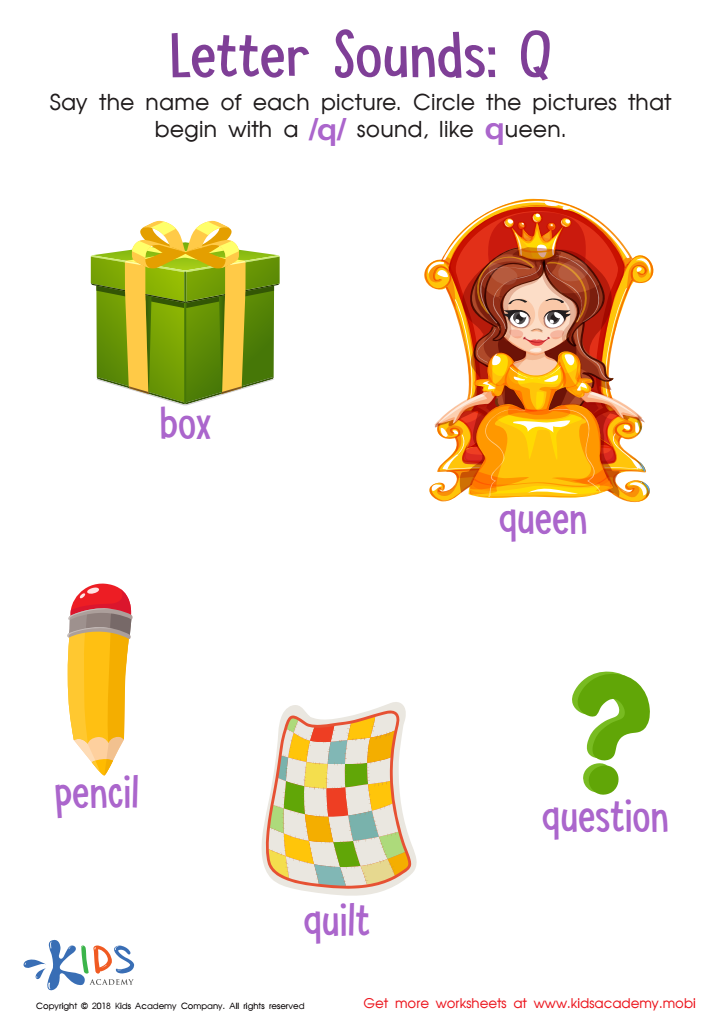

Letter Q Sounds Worksheet


Letter X Tracing Page
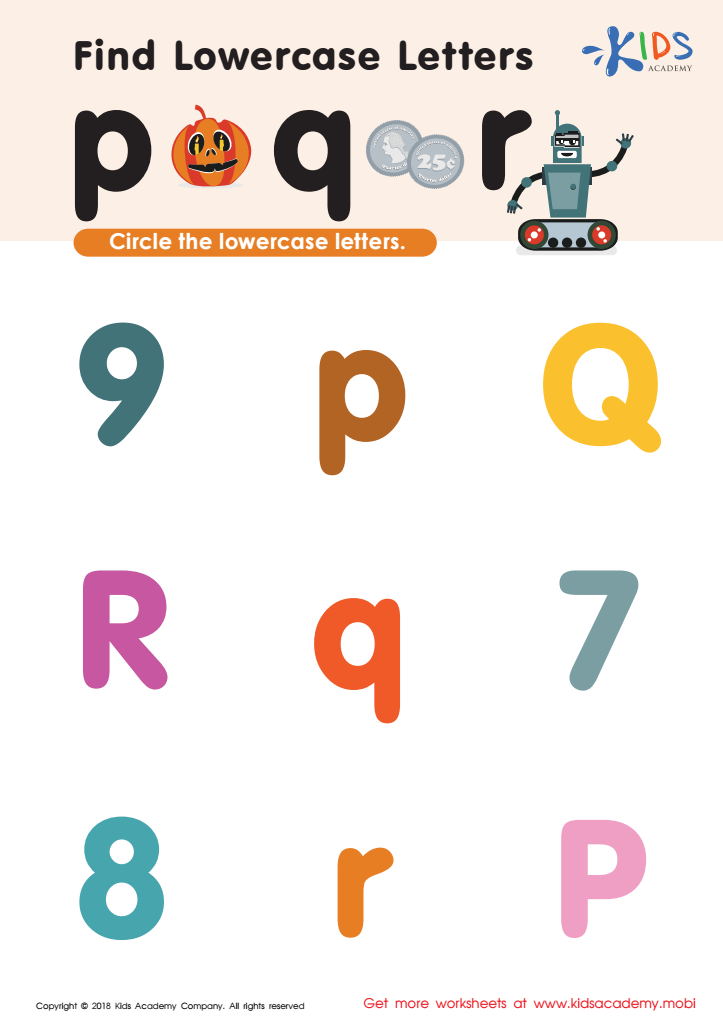

Find lowercase Letters p q r Worksheet
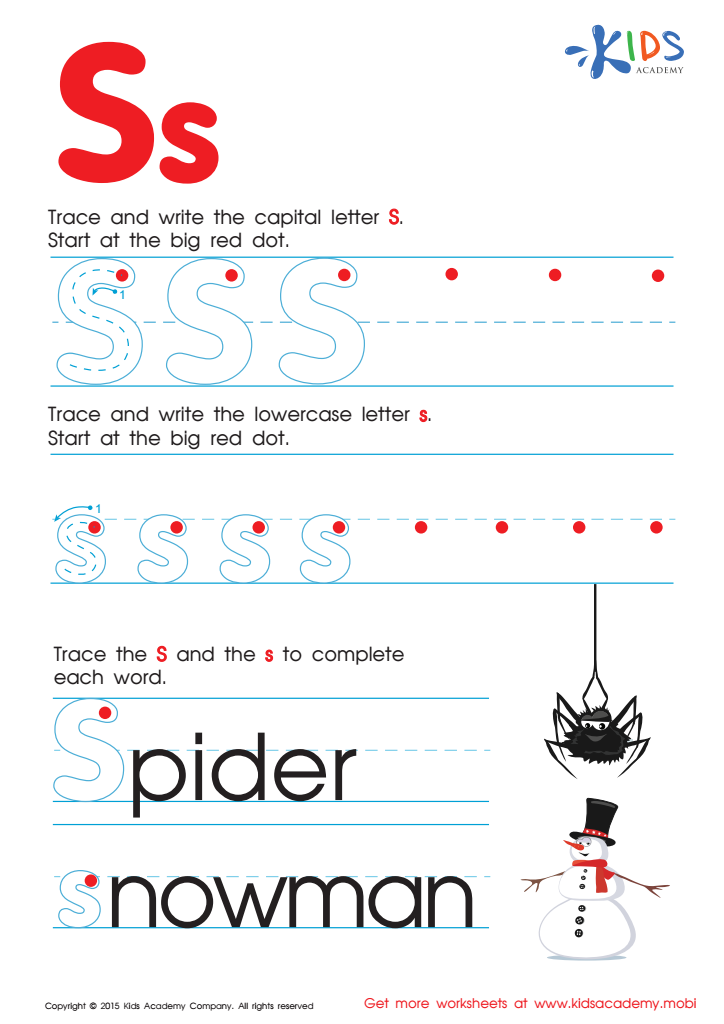

Letter S Tracing Page
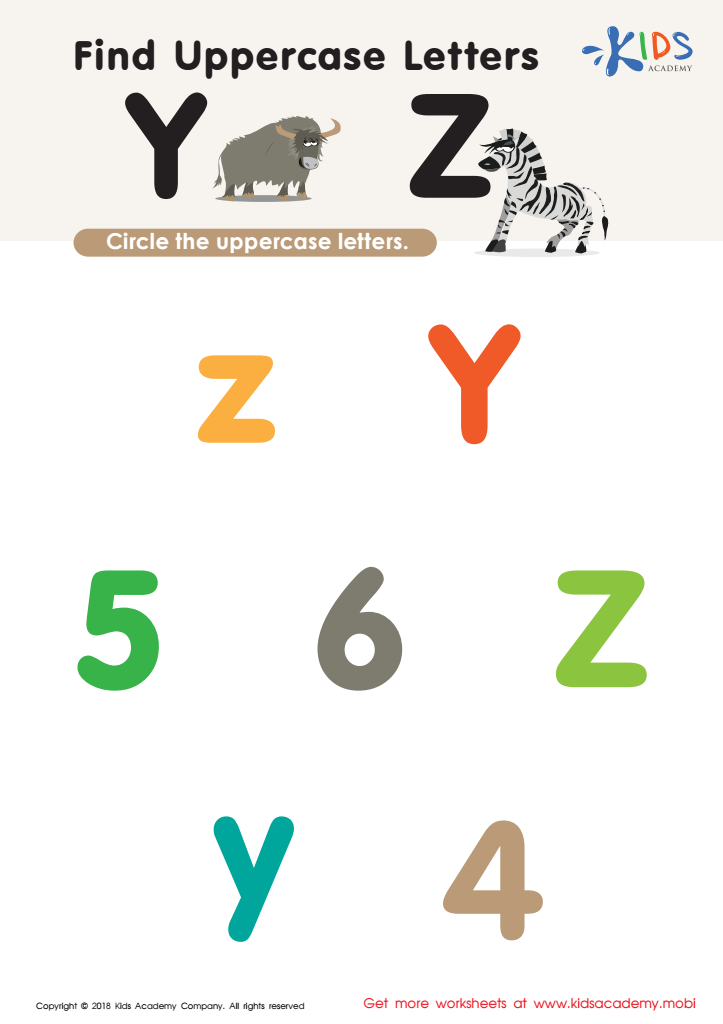

Find Uppercase Letters Y Z Worksheet
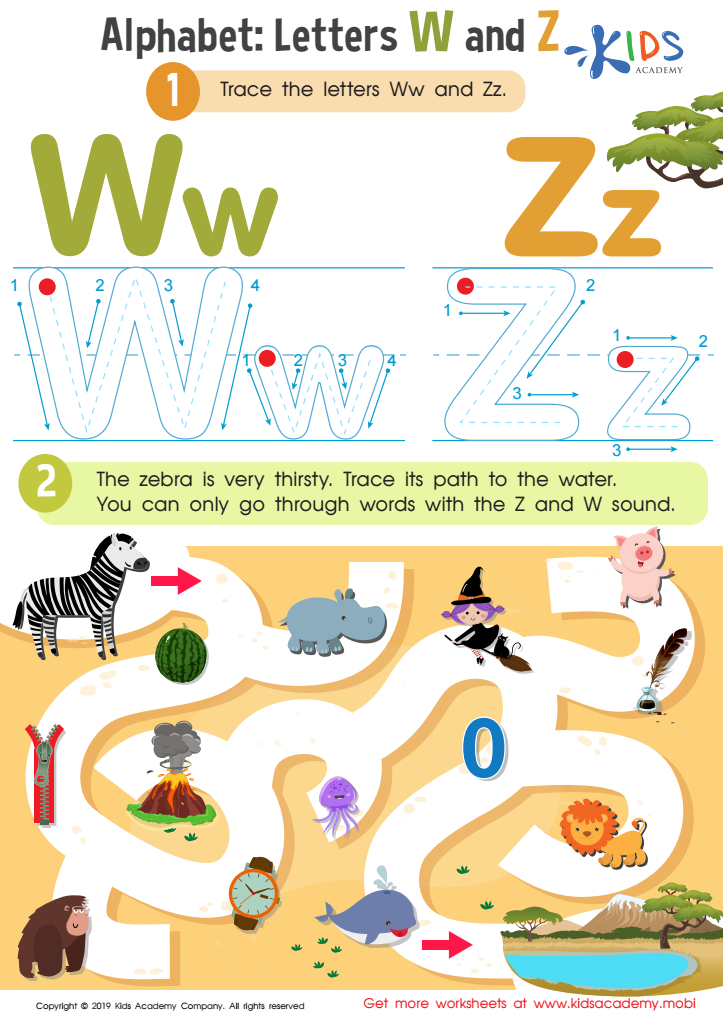

Letters W and Z Tracing Worksheet
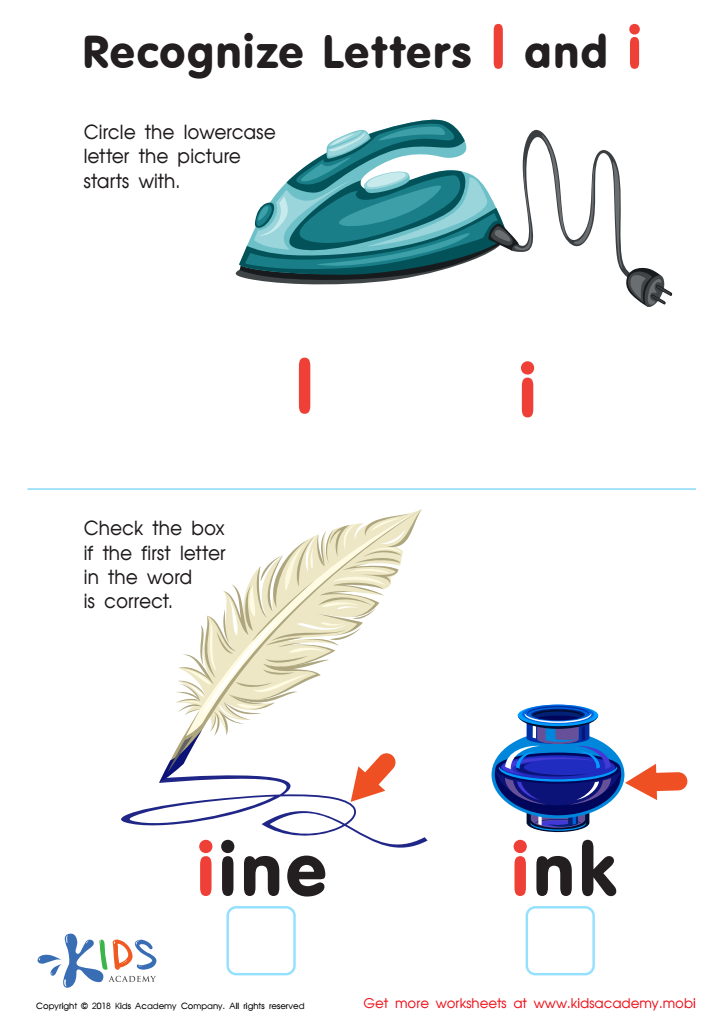

Recognize Letters l and i Worksheet
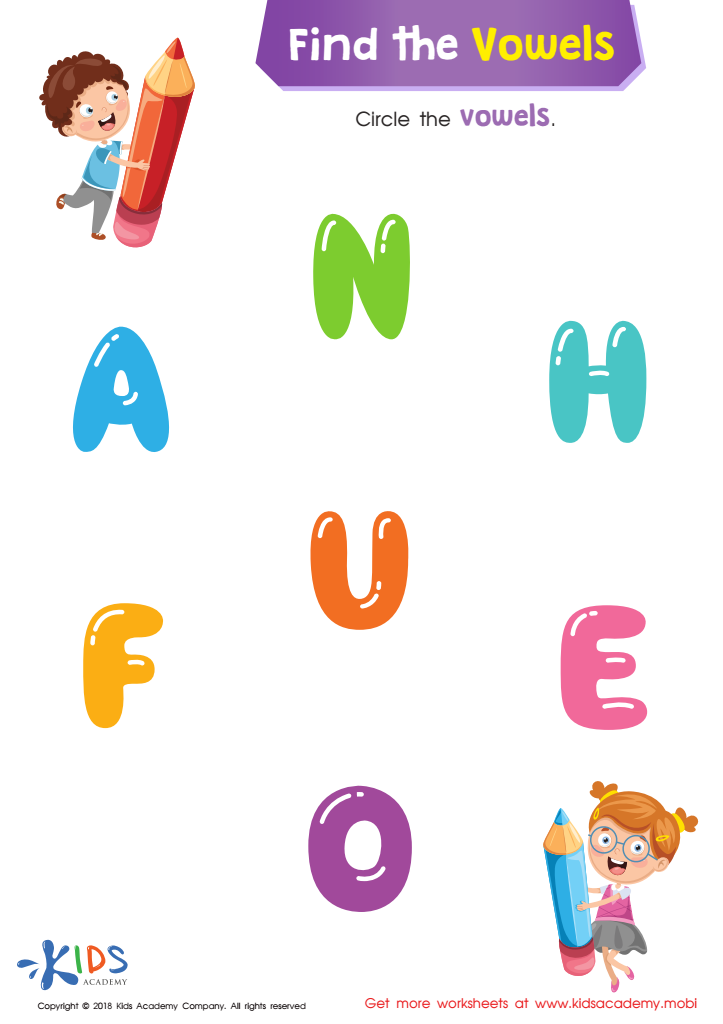

Find the Vowels Reading Worksheet
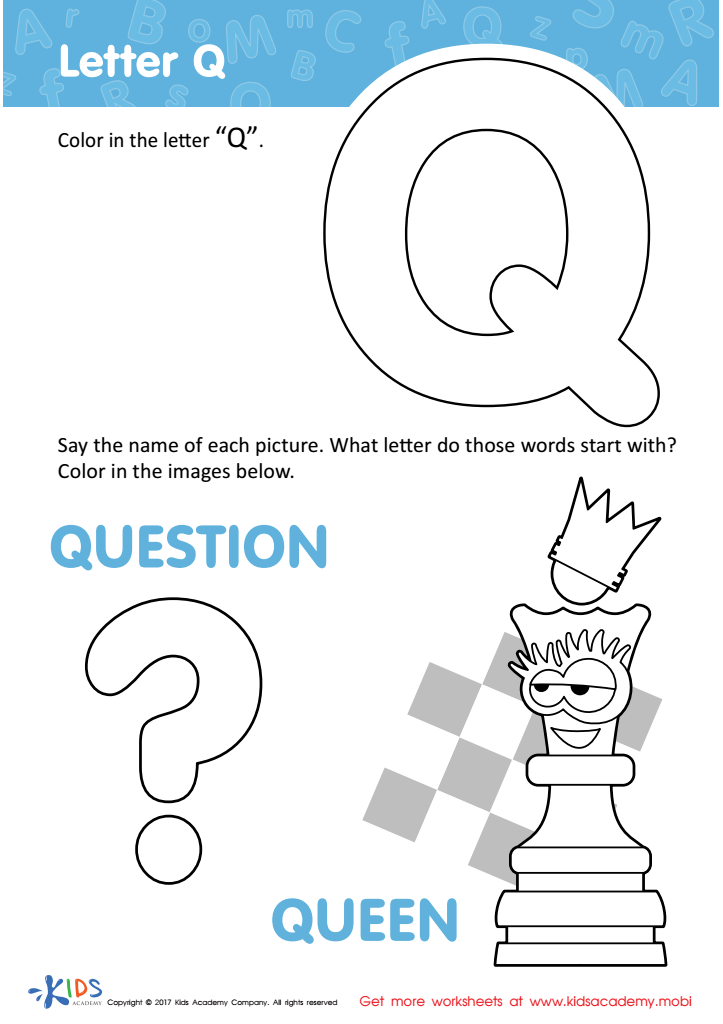

Letter Q Coloring Sheet
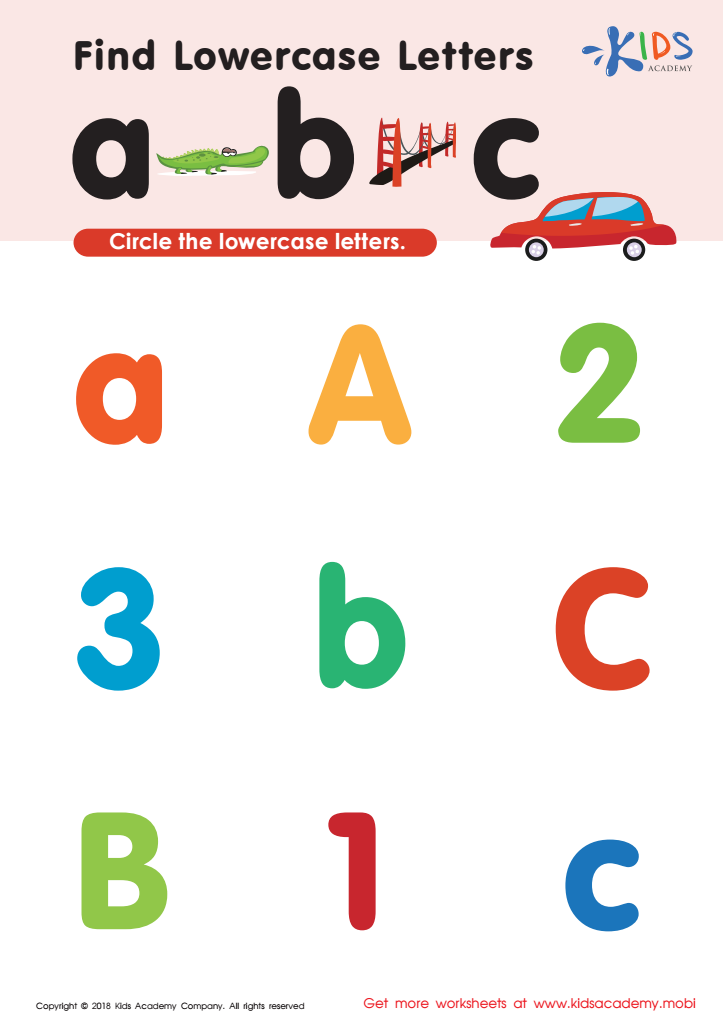

Find lowercase letters a b c Worksheet
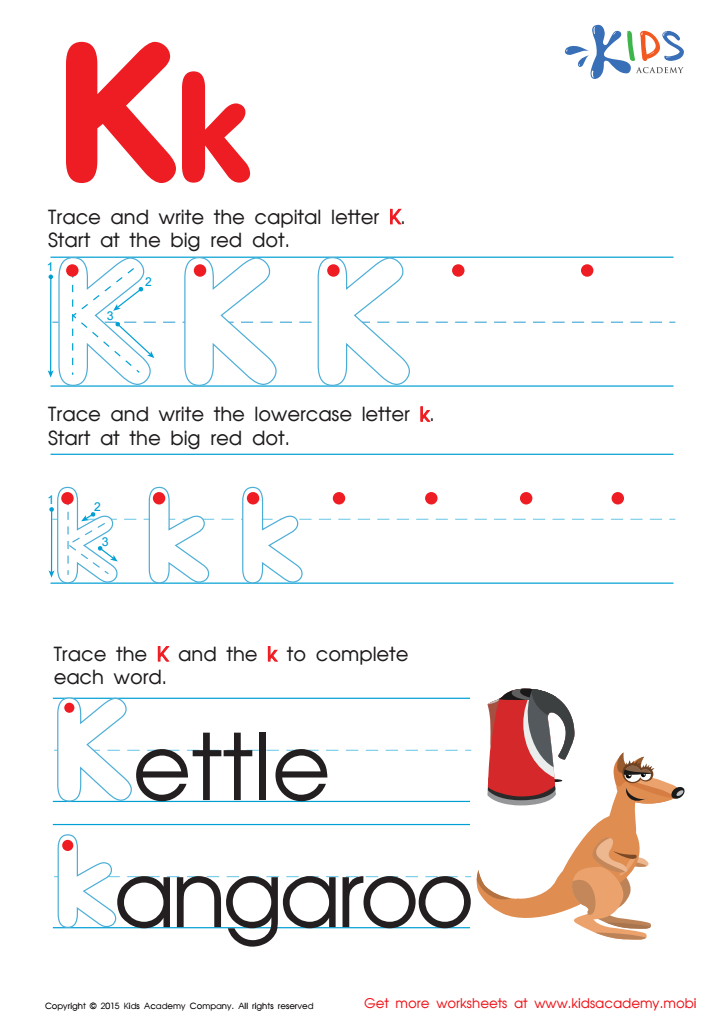

Letter K Tracing Page
Parents and teachers should prioritize alphabet understanding for children aged 3-5 because it forms the foundation for essential reading and writing skills. During these formative years, young brains are particularly receptive to learning and absorbing new information. By familiarizing children with letters and their sounds, we set the stage for effective phonetic development, which is crucial for decoding words and fostering literacy.
Understanding the alphabet also enhances cognitive development. Recognizing letters helps in memory enhancement, pattern identification, and increases language abilities. These skills are interrelated — gaining one ability strengthens the others, establishing a robust framework for all future learning.
Moreover, early alphabet knowledge boosts self-confidence and curiosity. Children feel a sense of achievement upon recognizing and naming letters, encouraging further exploration and learning. This is crucial for building a positive attitude toward education.
Parents and educators who actively engage in alphabet activities — by reading books, playing letter games, and encouraging writing — create an interactive and stimulating environment. Such involvement ensures that children develop fine motor skills, improve their attention spans, and cultivate a love for reading.
Ultimately, prioritizing alphabet understanding in these early years equips children with the tools they need for academic success and lifelong learning. This foundational skill enables them to thrive in school and beyond.
 Assign to My Students
Assign to My Students
















